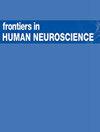Local variation in brain temperature explains gender-specificity of working memory performance
IF 2.4
3区 医学
Q3 NEUROSCIENCES
引用次数: 0
Abstract
IntroductionExploring gender differences in cognitive abilities offers vital insights into human brain functioning.MethodsOur study utilized advanced techniques like magnetic resonance thermometry, standard working memory n-back tasks, and functional MRI to investigate if gender-based variations in brain temperature correlate with distinct neuronal responses and working memory capabilities.ResultsWe observed a significant decrease in average brain temperature in males during working memory tasks, a phenomenon not seen in females. Although changes in female brain temperature were significantly lower than in males, we found an inverse relationship between the absolute temperature change (ATC) and cognitive performance, alongside a correlation with blood oxygen level dependent (BOLD) signal change induced by neural activity. This suggests that in females, ATC is a crucial determinant for the link between cognitive performance and BOLD responses, a linkage not evident in males. However, we also observed additional female specific BOLD responses aligned with comparable task performance to that of males.DiscussionOur results suggest that females compensate for their brain’s heightened temperature sensitivity by activating additional neuronal networks to support working memory. This study not only underscores the complexity of gender differences in cognitive processing but also opens new avenues for understanding how temperature fluctuations influence brain functionality.大脑温度的局部变化可解释工作记忆能力的性别特异性
方法我们的研究利用磁共振温度测定法、标准工作记忆n-back任务和功能磁共振成像等先进技术,研究脑温的性别差异是否与不同的神经元反应和工作记忆能力相关。虽然女性脑温的变化明显低于男性,但我们发现绝对温度变化(ATC)与认知能力之间存在反比关系,同时还与神经活动引起的血氧水平依赖性(BOLD)信号变化相关。这表明,在女性中,绝对温度变化是决定认知能力与 BOLD 反应之间联系的关键因素,而这种联系在男性中并不明显。我们的研究结果表明,女性通过激活额外的神经元网络来支持工作记忆,从而弥补了其大脑温度敏感性的提高。这项研究不仅强调了认知处理过程中性别差异的复杂性,而且为了解温度波动如何影响大脑功能开辟了新的途径。
本文章由计算机程序翻译,如有差异,请以英文原文为准。
求助全文
约1分钟内获得全文
求助全文
来源期刊

Frontiers in Human Neuroscience
医学-神经科学
CiteScore
4.70
自引率
6.90%
发文量
830
审稿时长
2-4 weeks
期刊介绍:
Frontiers in Human Neuroscience is a first-tier electronic journal devoted to understanding the brain mechanisms supporting cognitive and social behavior in humans, and how these mechanisms might be altered in disease states. The last 25 years have seen an explosive growth in both the methods and the theoretical constructs available to study the human brain. Advances in electrophysiological, neuroimaging, neuropsychological, psychophysical, neuropharmacological and computational approaches have provided key insights into the mechanisms of a broad range of human behaviors in both health and disease. Work in human neuroscience ranges from the cognitive domain, including areas such as memory, attention, language and perception to the social domain, with this last subject addressing topics, such as interpersonal interactions, social discourse and emotional regulation. How these processes unfold during development, mature in adulthood and often decline in aging, and how they are altered in a host of developmental, neurological and psychiatric disorders, has become increasingly amenable to human neuroscience research approaches. Work in human neuroscience has influenced many areas of inquiry ranging from social and cognitive psychology to economics, law and public policy. Accordingly, our journal will provide a forum for human research spanning all areas of human cognitive, social, developmental and translational neuroscience using any research approach.
 求助内容:
求助内容: 应助结果提醒方式:
应助结果提醒方式:


